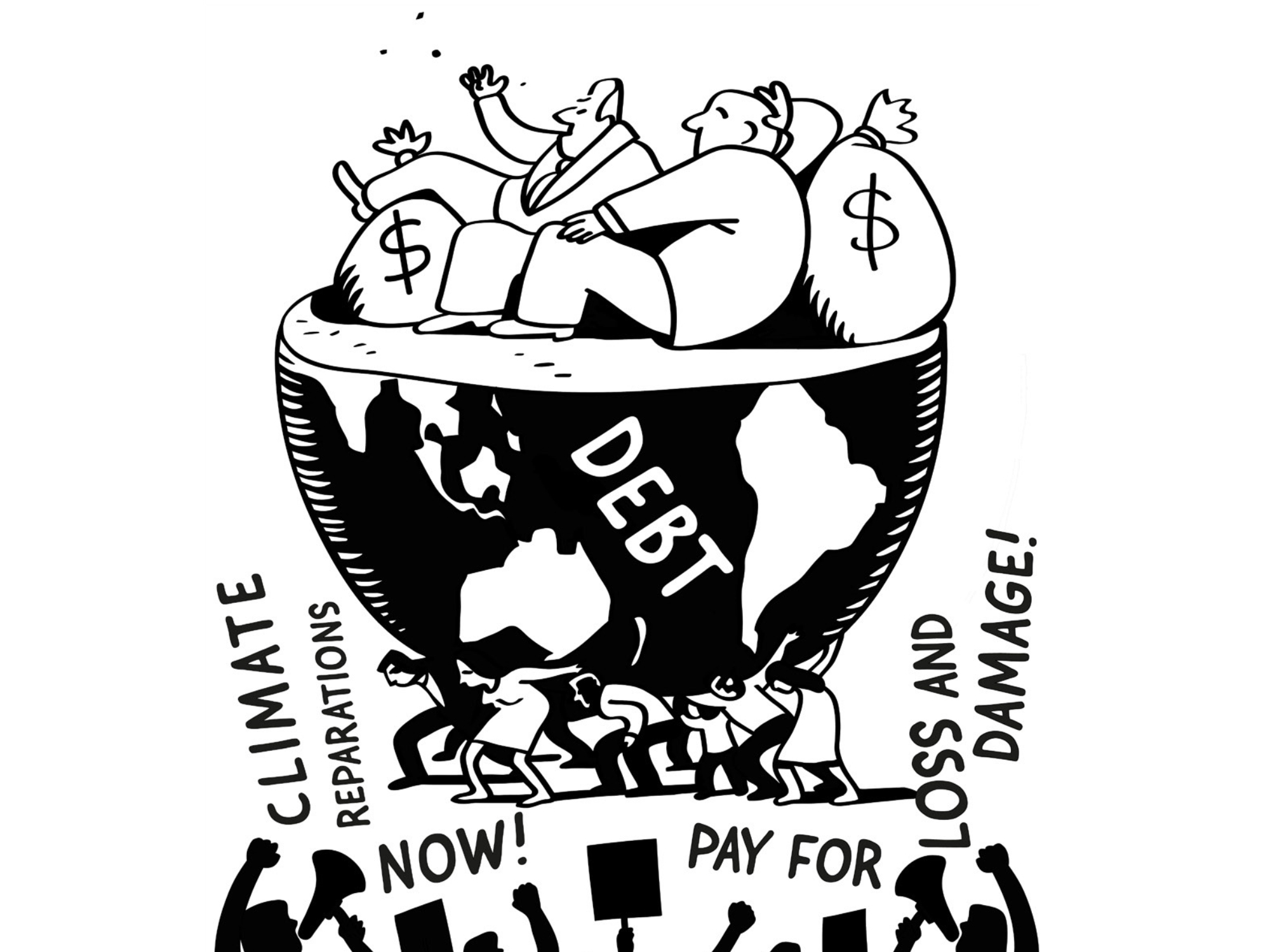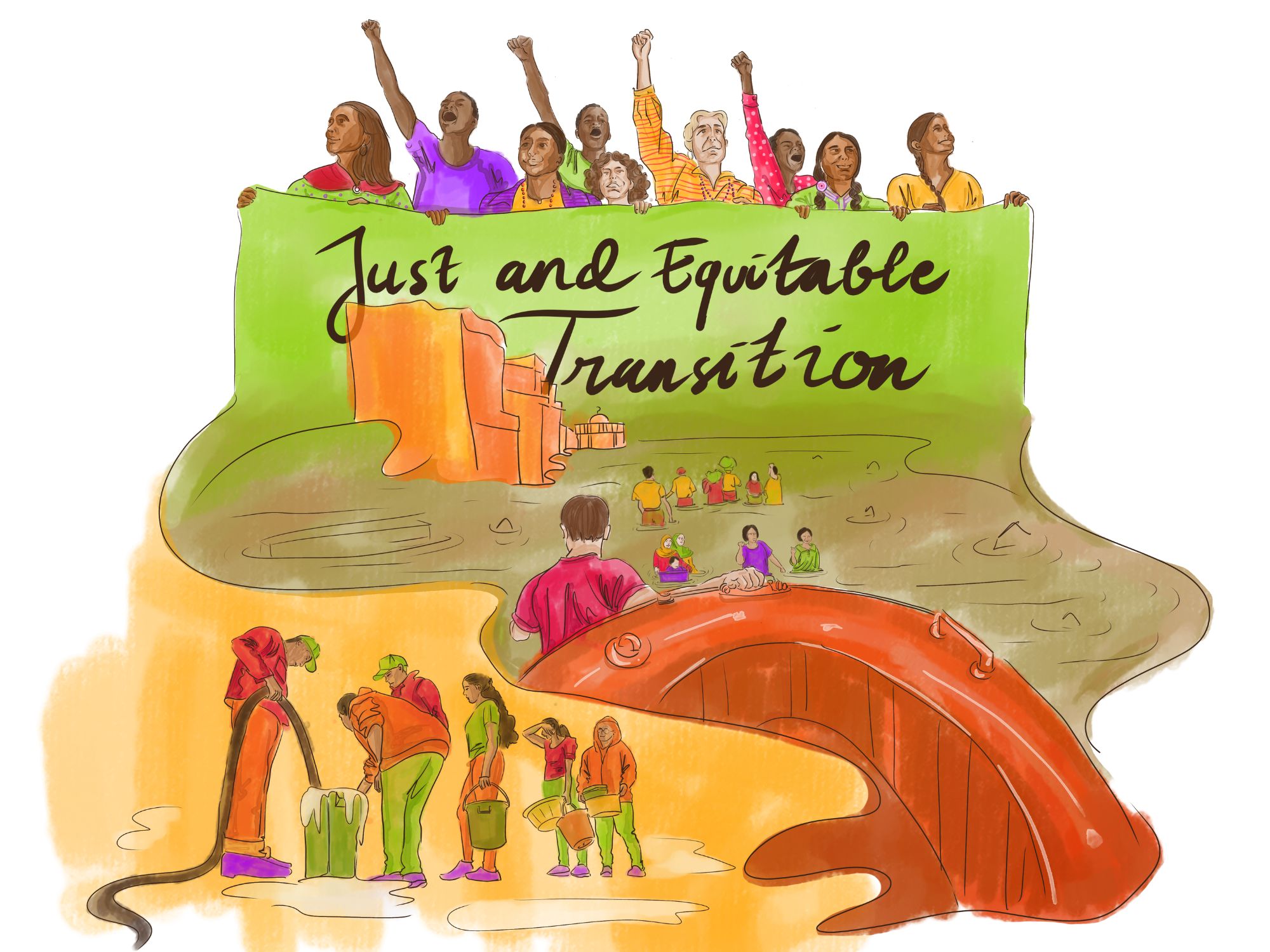The time for transformation is now. Grounded in the lived realities and struggles of communities across the Global South, we, the undersigned civil society organizations, urge UN Member States, international organizations, and civil society to champion the following priorities in the FfD4 negotiations. By centering human rights, rejecting austerity, and democratizing global governance, we can transform the financial architecture to redress systemic inequities and ensure our right to the future. We commit to collaborating with allies to hold those in power accountable, leveraging this momentum to ensure no one is left behind. As the global repression of civil society continues to silence many of our voices, the communities most impacted by an unjust and colonial economic system must not be left out of key negotiations. A truly transformed financial architecture must continue to advance in Seville, in alignment with the following key demands:
1. Endorse the UN Framework Convention on International Tax Cooperation
The FfD4 outcome document must unequivocally endorse the UN Framework Convention on International Tax Cooperation negotiations, whose Terms of Reference were finalized through an inclusive UN process in 2024, to dismantle colonial legacies in global tax governance. This Convention must prioritize eliminating gender biases in tax systems, ending the “race to the bottom” in corporate tax rates, and combating illicit financial flows that drain resources from the Global South. As OHCHR emphasizes, international tax cooperation must align with human rights obligations, ensuring progressive taxation and redistributive policies to fund gender-transformative budgeting and universal public services. Any reopening of discussions favoring OECD/G20-dominated frameworks risks perpetuating inequitable power dynamics.
Further, FFD4 must also institutionalize a public country-by-country reporting (CBCR) and a global beneficial ownership register (Global Asset Register) to combat tax evasion and illicit flows. OHCHR’s transparency recommendations (para 24 bis) should be expanded to ensure developing countries can reclaim resources for public services.
2. Establish a UN Convention on Sovereign Debt for Debt Cancellation and Restructuring
FfD4 must ultimately endorse and support the initiation of an inter-governmental process under the UN mechanism to address the deepening debt crisis by facilitating debt cancellation and restructuring, especially for countries with unsustainable debt burdens. Countries should not be forced to prioritize debt repayment over expenditure on public services and the climate crisis. A UN Convention on Sovereign Debt is urgently needed to set binding principles on responsible borrowing and lending, establish mechanisms for Debt Transparency and ways of addressing the need for substantial debt reduction, including debt cancellation of unsustainable and illegitimate debts. The Convention would finally ensure countries’ access to a fair, democratic debt resolution process under the UN, outside of the US-dominated World Bank/International Monetary Fund framework and the failed Common Framework.
3. Prioritize Gender-Transformative Fiscal Systems and Reject Austerity
Tax systems must be progressive, gender-transformative, intersectional, and explicitly reject austerity measures that disproportionately harm women and girls (in all their diversity), and other marginalized communities. FfD4 must strengthen language on gender-transformative fiscal policies, including binding commitments to fund universal social protections, publicly financed healthcare (including sexual and reproductive rights), and inclusive education. Aligning with OHCHR’s call to tax high-net-worth individuals (para 22e), we demand wealth redistribution to address systemic inequalities and fund economies rooted in care. Fiscal rules must prioritize human rights over macroeconomic rigidity, ensuring states can meet obligations under the Sustainable Development Goals (SDGs) and international law.
4. Ensure Greater Democratic Governance and Stop Corporate Capture
We urge the initiation of a UN-led process to comprehensively review and reform the governance structures of the International Monetary Fund (IMF), the World Bank, and other multilateral development banks (MDBs). The governance and mandates of Bretton Woods institutions and other IFIs must be reviewed and brought into alignment with the UN Charter and international human rights law, particularly the right to self-determination and the right to development, under an intergovernmental process that is inclusive, democratic, and accountable. This includes redistributing voting power to eliminate de facto vetoes, expanding the representation of developing countries, and restoring basic votes based on sovereign equality.
The FfD and other UN processes should allocate direct funding and safe participation for feminist, migrant, and grassroots groups, along with civil society organizations in policy design and decision-making spaces – while actively limiting the access and influence of corporate lobbyists to address and stop the corporate capture of these processes and multilateral spaces.
5. Innovative Financing Anchored in Equity and Reparative Justice
Global solidarity levies must be framed as reparative obligations, not charity, to address historical injustices resulting from colonialism and climate debt. These levies should fund rights-based development in the Global South, prioritizing marginalized groups, and align with the Maastricht Principles on Future Generations. FfD4 must reject privatization and financialization of essential services (e.g., healthcare, education) and ensure private sector engagement adheres to human rights standards, guided by a UN Binding Treaty on Business and Human Rights.
6. Embed Common but Differentiated Responsibilities (CBDR) in Financing
Explicit inclusion and push for the operationalization of CBDR in the FfD4 outcome are critical to hold wealthy nations accountable for financing sustainable development and climate action. The financing must be rooted in reparative justice, delivered as grants, not loans, and as unconditional climate finance grounded in historical responsibility and real needs of the Global South countries, not market-driven. Global North countries that block equitable access to climate finance and promote austerity and “green” extractivism through debt conditionalities must be held accountable for violating their extraterritorial human rights obligations. CBDR principles must also underpin debt restructuring through a UN Framework Convention on Sovereign Debt, prioritizing human rights over creditor interests, and ensuring debt sustainability analyses (DSA) integrate gender and climate justice.
7. Robust Accountability with Intersectional Human Rights Indicators
FfD4 must establish enforceable monitoring mechanisms, including civil society-led Financing Action Reviews and Integrated National Financing Frameworks (INFFs) that track impacts on marginalized groups. Drawing from OHCHR’s National Recommendations Tracking Database (NRTD), progress must be measured using intersectional gender, disability, and climate justice indicators, ensuring transparency and reparative outcomes.
8. Establish Equitable Trade Policies in Alignment with Human Rights
The FfD4 negotiations should allow equitable participation of Global South states and their right to implement industrial, agricultural, and social policies that support local development goals and economic structural transformation. Trade negotiations must be transparent, participatory, and inclusive of civil society, women, and marginalized communities to ensure outcomes that reflect public interests rather than those of wealthy countries and multinational corporations. Trade agreements reached at FfD4 must reflect enforceable environmental and labor standards, ensuring that trade contributes to, rather than undermines, sustainable development, climate action, and human rights protections.
9. Establish Regulatory Mandates under the UN for Global Financial Actors and End the Disproportionate Influence of Exclusive, Non-transparent Bodies.
We demand the creation of intergovernmental mechanisms under ECOSOC to regulate and hold accountable transnational financial actors, including Credit Rating Agencies, hedge funds, and sovereign bondholders. This should include the exploration of a publicly mandated international credit rating agency and a strengthened global reserve system based on equitable access to Special Drawing Rights (SDRs).
We also reject any governance or regulatory mandates being assigned to bodies such as the Financial Stability Board and BIS, which lack universal representation and are dominated by a narrow group of high-income countries. Global financial regulation must be rooted in transparent, inclusive, and rights-based institutions accountable to all Member States.
ESCR-Net is a global network of over 300 human rights organizations from across 80 countries. This statement was developed and led by ESCR-Net members including Dejusticia, MENAFem, SEATINI, Asia Peoples’ Movement on Debt and Development, Center for Economic and Social Rights (CESR) and the Economic Policy Working Group members.


